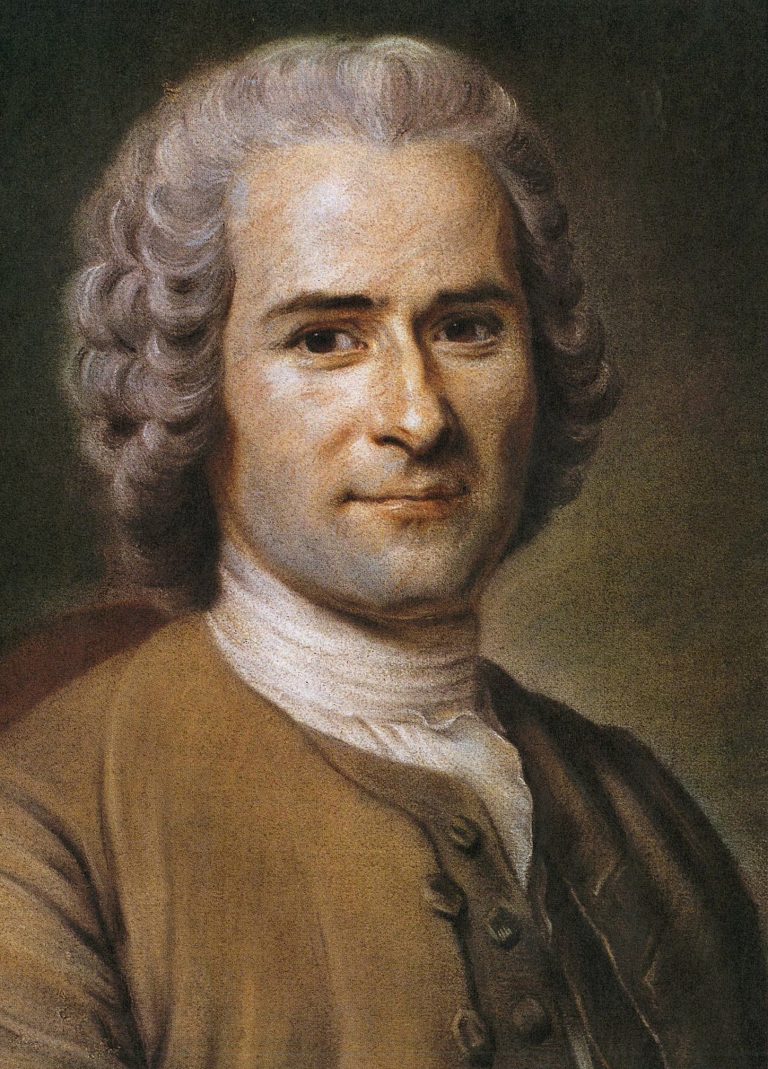Date of Birth: June 28, 1712
Zodiac Sign: Cancer
Date of Death: July 2, 1778
Biography
Jean-Jacques Rousseau was a prominent Genevan philosopher, writer, and composer of the 18th century. Born on June 28, 1712, in Geneva, he became one of the most influential thinkers during the Enlightenment period. His political philosophy particularly influenced the French Revolution and the development of modern political, economic, and educational thought. Rousseau’s early life was marked by hardship. His mother died shortly after his birth, and his father, a watchmaker, fled Geneva to avoid imprisonment when Rousseau was only ten. He was subsequently raised by an uncle and educated at a local religious school. Rousseau later moved to Paris, where he became involved with the intellectual community and met other Enlightenment figures such as Voltaire and Diderot. In 1750, Rousseau won an essay contest organized by the Academy of Dijon, arguing that the progress of the sciences and arts had led to the corruption of virtue and morality. This essay, “Discourse on the Arts and Sciences,” catapulted him to fame. He followed this with several other influential works, including “Discourse on the Origin and Basis of Inequality Among Men,” “The Social Contract,” and “Emile, or On Education.” Rousseau’s ideas on education, citizenship, and individual freedom were revolutionary. He believed that human beings are inherently good but are corrupted by society. His concept of the “noble savage” and his advocacy for direct democracy and the general will were highly influential and remain topics of significant academic discussion today. Rousseau’s later years were fraught with paranoia and persecution fears, leading him to live a reclusive life. He died on July 2, 1778, in Ermenonville, France, but his legacy endures as one of the preeminent figures of the Enlightenment.
5 Interesting Facts about Jean-Jacques Rousseau
1. Jean-Jacques Rousseau’s influential work, “The Social Contract,” begins with the famous line, “Man is born free, and everywhere he is in chains.”
2. Rousseau had a complicated relationship with other Enlightenment thinkers, including Voltaire and Diderot, and often found himself at odds with them.
3. Despite his advocacy for education and child-rearing in “Emile,” Rousseau placed all five of his children in orphanages.
4. Rousseau was also a composer and wrote seven operas, with “Le Devin du Village” being his most well-known musical work.
5. His philosophical ideas greatly influenced Romanticism, particularly through his novel “Julie, or the New Heloise.”
5 Most Interesting Quotes from Jean-Jacques Rousseau
1. “Man is born free, and everywhere he is in chains.”
2. “The world of reality has its limits; the world of imagination is boundless.”
3. “People who know little are usually great talkers, while men who know much say little.”
4. “To be sane in a world of madmen is in itself madness.”
5. “Patience is bitter, but its fruit is sweet.”
Highest Net Worth Achieved
Rousseau did not achieve significant financial wealth during his lifetime, and his net worth at any point was modest compared to today’s standards. He primarily lived off patronage and his earnings from writing and composing.
Children
Jean-Jacques Rousseau had five children with Thérèse Levasseur, all of whom he placed in the Enfants-Trouvés foundling hospital shortly after their births. Their names and subsequent lives remain largely undocumented.
Relevant Links
2. [Internet Encyclopedia of Philosophy – Jean-Jacques Rousseau](https://iep.utm.edu/rousseau/
4. [The Social Contract – Full Text](https://www.constitution.org/jjr/socon_01.htm
5. [Rousseau Association](http://www.rousseauassociation.org/


